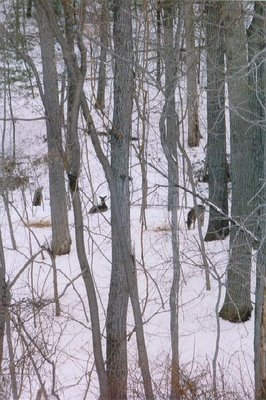Senator Obama on homophobia in the African American community:
I believe that Barack Obama understands injustice, and I believe that his personal conviction is that it must be eradicated. Still, I’m just kinda tired of people who mince lightly along when their strides ought to be registering on seismographs. I’m glad that Mr. Obama brings up the issue of homophobia in the African American community when he gets the chance to and I really do appreciate the fact that he links it to the issue of social justice in general, but I still really want him to put the message forth more forcefully. If an African American pastor of an African American church preaches bigotry, she or he should be called to task--and not indirectly either. Soft and fuzzy metaphors shouldn’t stand in for the blunt truth when the issue is hate.
Am I, a white male, presuming to tell Mr. Obama how he should speak to African Americans on this issue? Well...yes. I am. When oppressed minorities participate in the oppression of others, excusing it as the product of ignorance is unacceptable. When Mr. Obama talks to African Americans about these issues, he should remind them of the powerful opportunity they have to stand up for justice for ALL human beings. But he should also ask why such a large number of African American churchgoers are content to see hatred flowing like rivers of tainted blood from their pulpits. He should ask why so many participate in discrimination against their fellow citizens, and why so many more ignore it. He should ask why so many work so hard to perpetuate the injustices that their forebears fought against.
I’d spend some time here discussing the fact that many gay men need to examine these exact same issues, but I’m not interested in qualifying my criticism of African American bigots. Gay or straight, black or white, poor or rich, hatred needs to be exposed for what it is, and responding by pointing fingers in other directions changes exactly nothing. Take another look at your history, African American bigots. Re-learn your lessons. And fix what’s broken. You’ve ceded the moral high ground, and it’s time for you to reclaim it.
Senator Obama on gay marriage and the church's role in determining civil rights:
Obama (and later, John Edwards and Hillary Clinton) skirted around the real reason he’s against gay marriage. I understand the candidates' belief that expressing support for equal marriage opportunities makes them less electable; they may well be correct about that as long as they feel they should apologize for standing up for what's right and just. But why not attack the fundamental illogic of the whole issue? The truth is this: None of people who are fighting against equal marriage rights are self-proclaimed bigots or hatemongers. Yet refusing to apply the term “marriage” to the long-term unions of LGBT folks directly implies and bolsters the idea that there’s something fundamentally wrong with people who are not straight. And that…well, that’s bullshit. And so yeah: I have a problem with "leaders" who refuse to call same-sex marriages by their proper name. I, too, sing America; I, too, have a dream. The same exact dream that Mr. Hughes and Dr. King had. And separate-but-equal civil unions sure as hell aren't any more a part of that dream than segregated schools and whites-only water fountains. We can do better. And so can Edwards, Clinton, and Obama.


